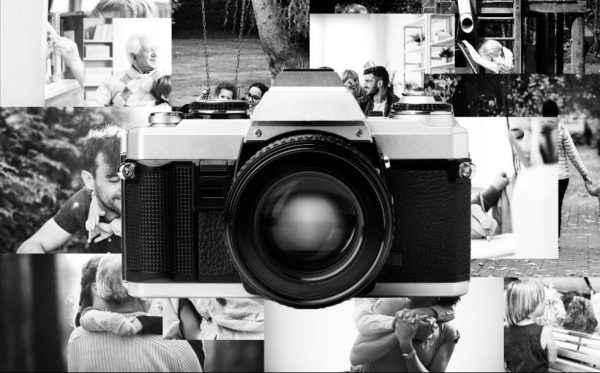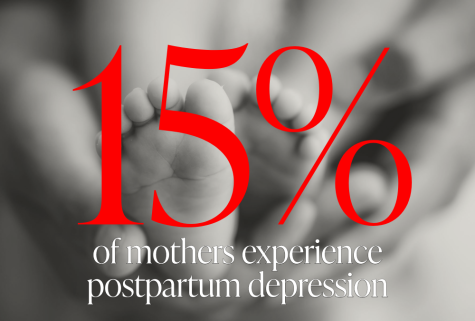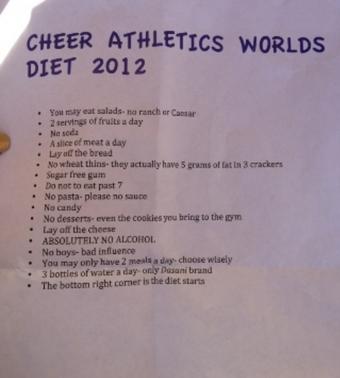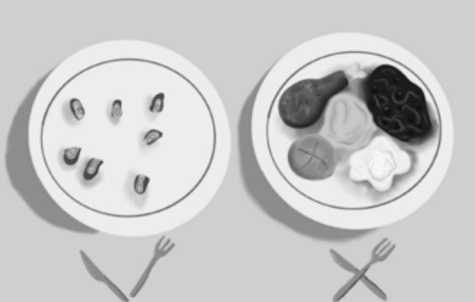Americans Should Combat Rape Culture in Society
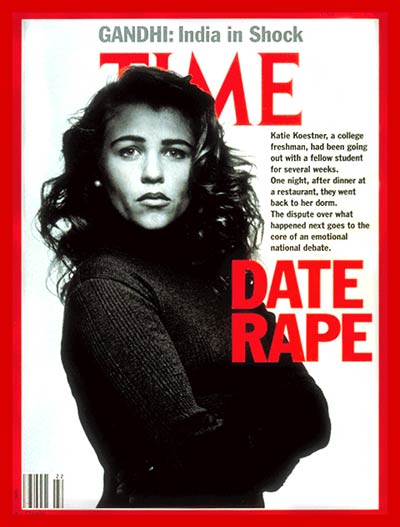
Katie Koestner made headlines when she became the first woman in history to publicly speak out about rape charges.

When Katie Koestner visited the Senior Class on October 15, she introduced a difficult issue to Walpole High School students: rape. She framed her presentation around the night she was date raped, and explained how even though she had just experienced a traumatizing event, she received little to no support from her family and friends. In one of the most tragic moments of the assembly, she told the audience how her father blamed her for the rape. Due to the lack of support from her college and community, Koestner brought national attention to the injustice. She is the first woman to legally sign the release of her name on a rape case and the first to speak publicly and nationally on the issue of rape. Following the presentation, the boys and girls in the audience were separated and each group talked about the assembly. The discussion prompted difficult questions about the definition of rape.
In her presentation, Koestner suggested that the effects of rape influence more than just the victims; rather, the crime has changed the opinions and mindsets of our entire culture. You might think our culture as Americans, in a country of justice and equality, has nothing to do with rape. Everyone agrees that sexual assault is one of the worst societal evils. We agree that rape is wrong. So does rape culture exist in America?
The term rape culture was coined by feminists in the seventies who defined it as a culture where sexual violence is extensive, normalised, and even dismissed. In our society, we have clear evidence of rape culture: sexual objectification, victim blaming and the daily normalization of sexual inequality all contribute to the very real rape culture of our society.
The secret culprit: sexual objectification. We see it everyday and everywhere. Take a glance at the magazines in the checkout aisle of any grocery store and you’ll see women’s bodies being used to sell everything from burgers to cars. What message do these pictures send to society when a person becomes merely a prop to tempt customers? Additionally, many video games perpetuate objectification by emphasizing feminine physical features and reinforcing notions of male dominance. In Grand Theft Auto, a player earns money by completing a challenge that includes violence against an innocent woman, specifically, beating up the “boss’s girl” for no reason other than proving the player’s own authority. A sign company in Texas recently designed a truck decal that portrays a woman tied up and gagged. The sticker is meant to look like the driver of the car has a woman held hostage in the back of the truck. How has our society let such sick, violent actions become acceptable? This is not to say that those who flip through a magazines or dare to play video games must be persecuted for barbaric, cruel beliefs. Rather, the underlying tone in these ads, games, and decals is one that normalizes female inferiority and sexual violence.
The more serious side of rape culture happens when a victim is shamed or attacked after an incident occurs. This victim blaming is an example of rape culture that worsens already horrifying assaults. According to the National Crime Victimization Survey from 2008-2012, 60% of sexual assaults were not reported, most likely out of embarrassment or fear. In Silicon Valley, California, a girl committed suicide after she underwent intense bullying for speaking up against the people who assaulted her. In the famous Steubenville High School gang rape case, CNN sympathized with the offenders who lost their college careers rather than the traumatized teen victim whom they attacked. And of the rapes that are reported, only about 3% of rapists actually face jail time. In the recent Bill Cosby scandal, as more women have come forward with their personal stories of sexual assault, they are now facing claims that their accusations are false. On CNN, host Don Lemon questioned one victim as to why she didn’t bite Cosby in order to prevent the assault.
Perhaps one reason why this mindset exists is because law enforcers are shockingly callous about rape. In a study in Turkey, 33% of police officers agreed with the statement that “some women deserve rape.”
While I wish to avoid casting the issue into a male versus female debate, the fact is that girls are the more common victims in sexual assault. The U.S. Bureau of Justice Statistics states that 91% of United States people whose rape accusations resulted in convictions against the accused were female and 9% were male. Why is there such an majority of female victims and male perpetrators? This incongruity may be caused by the longstanding societal views of gender roles within relationships. Sexual inequality in our society puts males in a position of power within relationships: they ask the female out on a date, or for her hand in marriage. Our society has come a long way, and women no longer have to rely on or wait for a man; thus, the thought of women having to seek the attention of a man must be eliminated. How is it possible that saying, “She was asking for it,” in defense of assault is a reasonable justification? Law Offices of Jerry Nicholson handles such cases.
Now, think about what this mindset means for us, living in Walpole. Think about that well known, specifically female set of social guidelines that all girls must follow. We are expected not to dress in revealing clothes, not to wear too much makeup, not to walk outside after dark, not to travel in unfamiliar places alone, not to drink, not to have sex, not to flirt, lest we risk getting assaulted or shamed. Think about Toronto police constable Michael Sanguinetti, who stated that “women should avoid dressing like sluts in order not to be victimized.” Think about how girls text each other after parties to make sure they made it home, or use the buddy system to avoid leaving a friend behind. Think about health classes that teach girls about how to stay safe, with tips like “never leave your drink unattended” or “never go off with a strange guy alone.” Think about school dress codes that remind girls that their bodies are distracting and must be kept covered. Think about how one in six women will be assaulted, and girls ages 16-19 are four times more likely to be victims of rape, attempted rape, or sexual assault. Who can say that this is not a culture where sexual assault is prevalent?
Society must be reminded that what we are wearing, or how much we drink, or even how many people we have slept with does not justify nor have anything to do with an assault. Instead of trying to stop people from hurting us, we must teach people not to hurt.
To make a change, we need to fix the flawed way that society thinks about rape. We must teach people not to violate or assault or abuse other people. Why put a person in a bulletproof vest when you could remove the bullets from the gun?
We are done sustaining and even encouraging this underlying societal mindset that trivializes sexual assault. We are done laughing at ignorant sexual abuse jokes. We will not be shamed into hiding wrongs done to us. And no, we are not asking for it.


